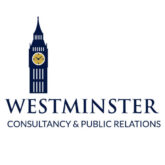In just over a decade, social media has transformed from a tool for personal connection into a powerful arena of political influence. Platforms like X (formerly Twitter), Facebook, Instagram, TikTok, and YouTube now serve as virtual parliaments, where ideas are debated, campaigns are launched, and policies are shaped — often in real time.
From Newsfeeds to Policy Agendas
In the past, governments and traditional media held the keys to shaping public discourse. Now, a viral post can reach millions in minutes, forcing policymakers to react faster than ever. Hashtags such as #MeToo, #BlackLivesMatter, or calls for #CeasefireNow in Gaza have shown that social media can elevate grassroots voices into mainstream political debates — sometimes altering the course of legislation or foreign policy.
“Today, the battle for policy influence is as likely to be fought on a hashtag as it is in parliament.”
Why Social Media Matters in Policy Debates
Social media has unique strengths as a platform for influence:
- Amplification of voices – marginalized groups can gain global attention without traditional media gatekeepers.
- Direct access to policymakers – MPs, ministers, and diplomats actively use platforms to engage with citizens and peers.
- Real-time pressure – viral campaigns can demand immediate responses, forcing governments to address issues on the spot.
- Data-driven narratives – campaigns increasingly rely on analytics and targeted messaging to shift opinions.
Risks and Challenges

Yet, the rise of digital influence is not without challenges. Disinformation, echo chambers, and algorithm-driven polarisation can distort debates and undermine trust in institutions. States and non-state actors alike exploit these platforms for propaganda, creating new arenas of “information warfare.” For policymakers, the challenge is harnessing the democratic potential of social media while guarding against its dangers.
Shaping Policy in the Digital Age
Around the world, policymakers are adapting. Governments are crafting digital communication strategies; NGOs are building online advocacy campaigns; and citizens’ movements are learning to combine online activism with offline lobbying. The interplay between these spaces shows that social media has moved from being a mirror of politics to becoming an engine of politics.
“Social media is no longer just commentary on policy — it is part of the policymaking process itself.”
Conclusion
The digital landscape is now inseparable from the policymaking process. For governments, NGOs, and businesses, understanding how social media shapes debates is essential for effective engagement. At Westminster Consultancy, we help clients navigate this new environment — where influence is measured not just in votes and speeches, but in shares, likes, and trending hashtags.

